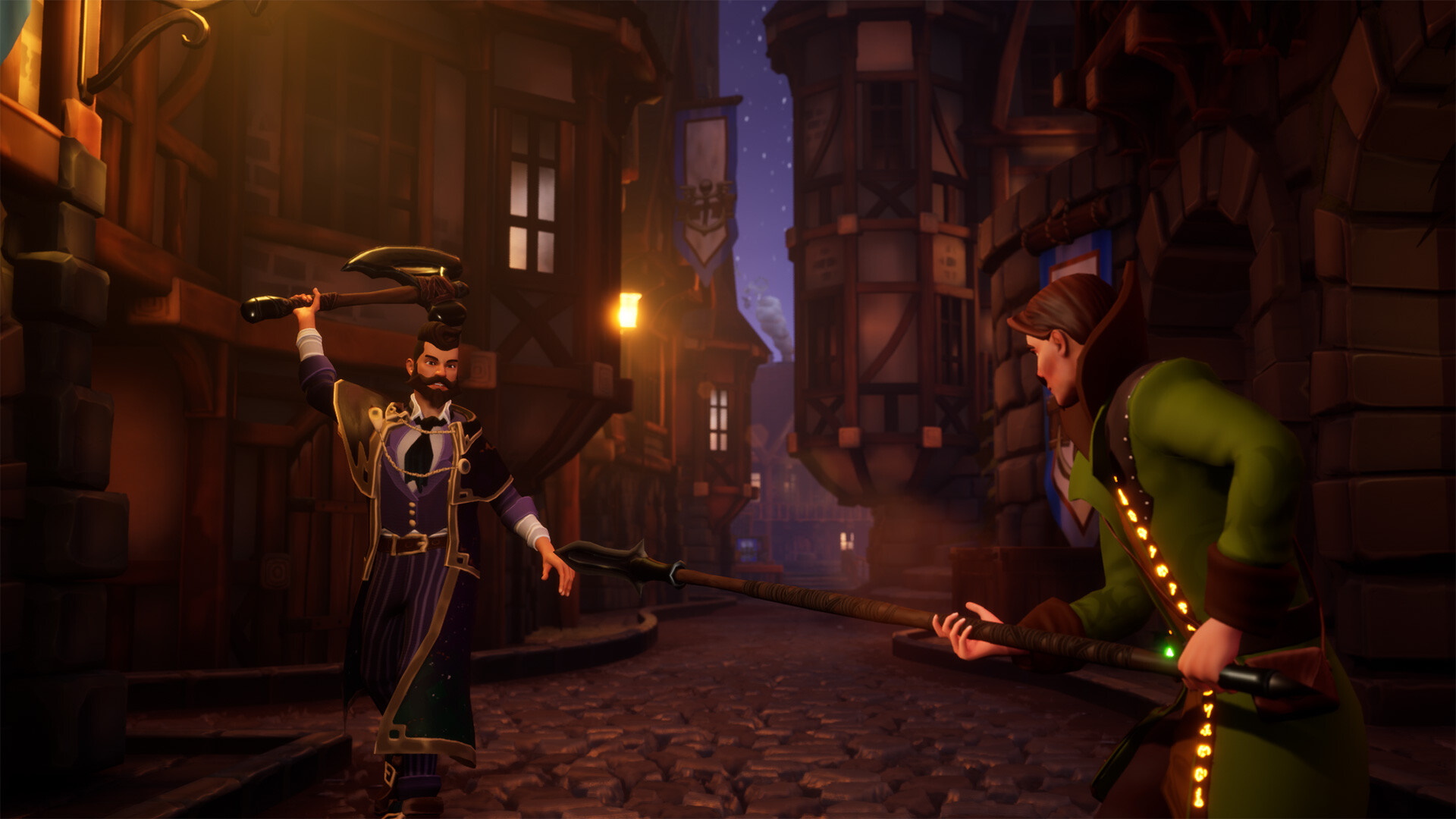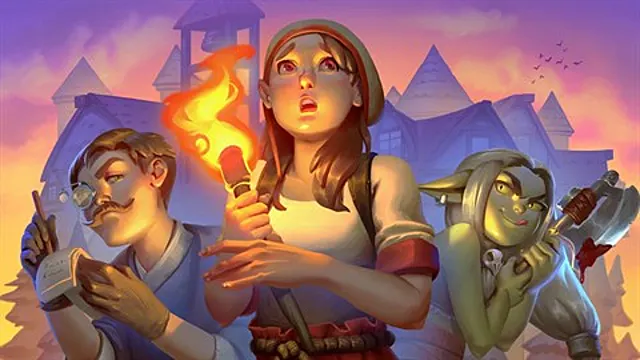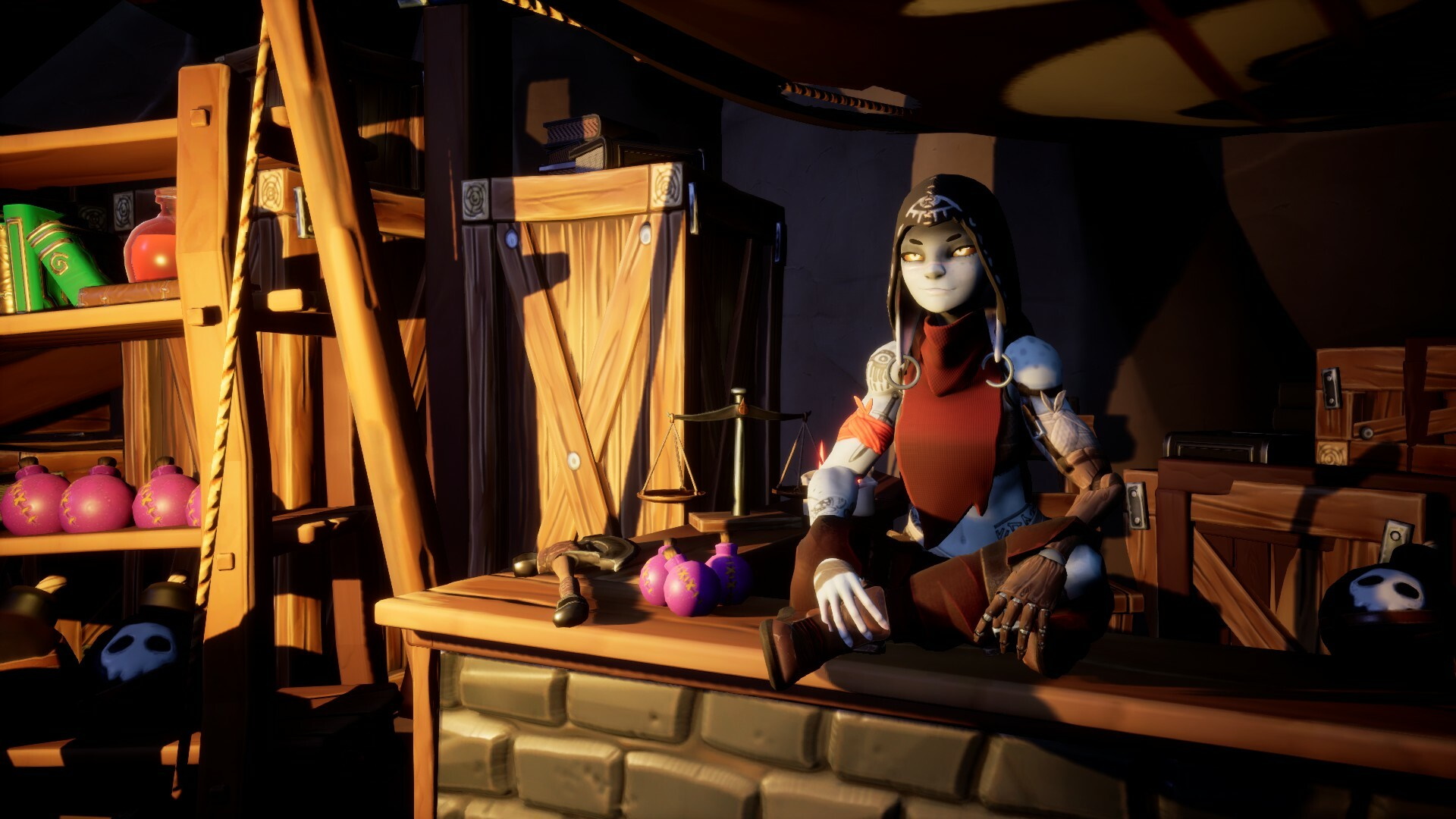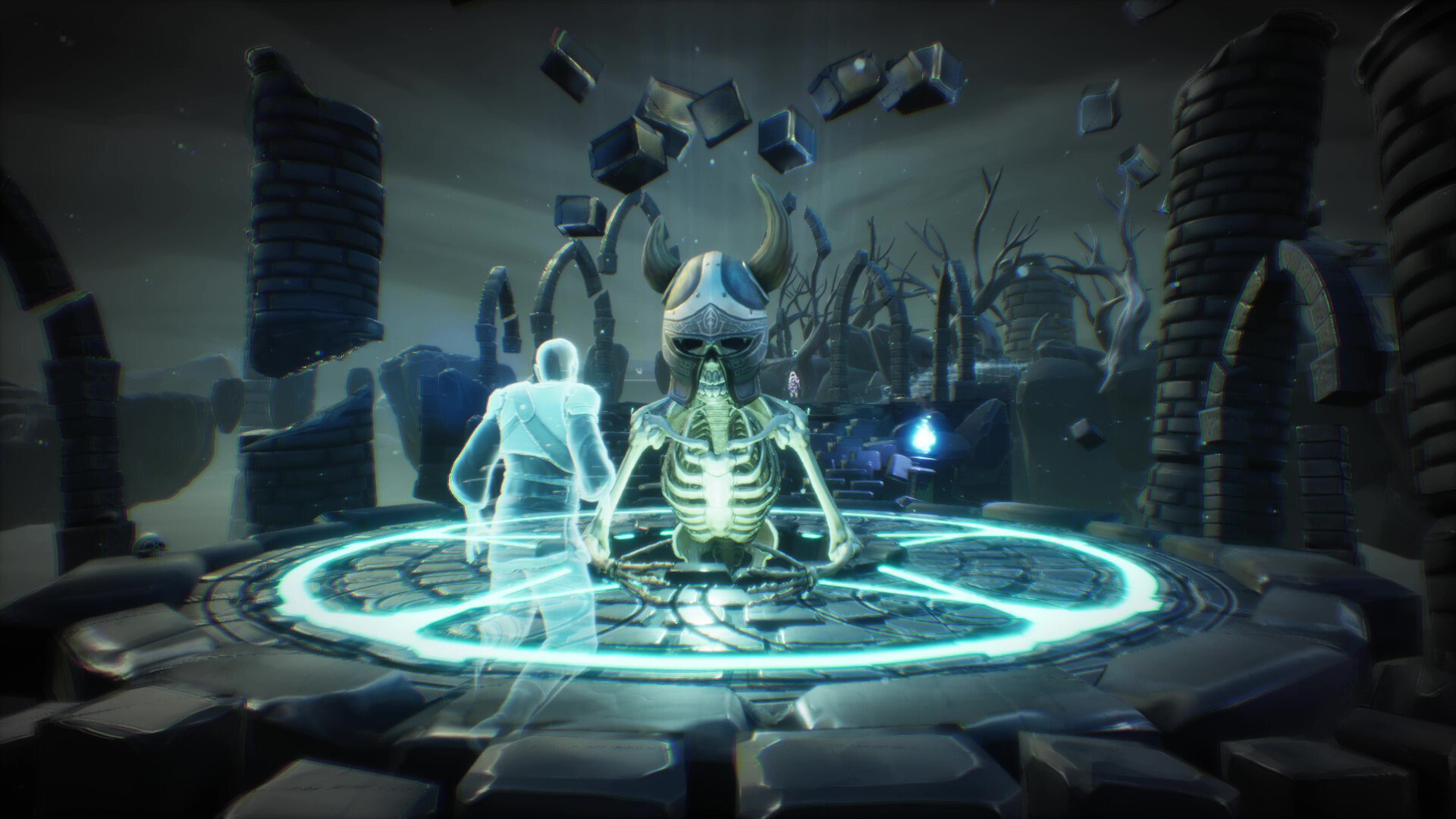They say you never really know your neighbor. They also say ignorance is bliss, but in Eville, if you don’t figure out who your neighbor is, you probably won’t live to see the next dawn. A group of nefarious rogues has infiltrated your charming medieval village, and it’s up to you to stop them before it’s too late or join them and bring the townsfolk to their knees
Eville is a social deduction game with a distinct tabletop flair. Its unique role features and RPG mechanics help distinguish it from other, more established games in the genre, but an unforgiving day cycle and lack of solo options mean it doesn’t shine quite as brightly as it should.
True to its inspirations, Eville functions more like a board game than a deduction video game like Among Us, sometimes to its detriment. It splits time between day and night. During the day, you wander the town, shore up your personal defenses, take on quests, and try to figure out who your fellow villagers are. At night, you sleep – and hope you live to see another day.
Only villains and certain villagers can move around at night. The baddies try sabotaging the village and murdering innocent folks while the callous, distant moon hangs overhead. Whether you survive the night depends on luck – a dead neighbor is sad but better than a dead you – and whether you planned ahead during the day accordingly.
Villagers can call emergency meetings to declare someone guilty or wait until someone dies and hold a town gathering. Then, it’s time to vote on their innocence. Get it right through teamwork and a keen nose for detection, and you save the day. If not, you just helped the rogues by crisping one of your neighbors.
Villagers can set traps and certain defenses to catch a barbarian or rogue unawares once the sun’s safe glow slips beneath the horizon, sometimes eliminating an enemy without you even having to put a potentially guilty party to the vote.
The trouble is finding the time to do it – or anything at all. The day lasts no longer than a minute, so unless you know the village’s layout intimately, you’ll likely spend several days figuring out where quest givers are and where to find what they need so you can stock up on crafting resources and get yourself ready for the dark nights ahead.
If you think about Eville as a board game, where you may spend a turn speaking with an NPC, for example, and then another turn seeking an item, the structure makes sense. In practice, though, it feels frustrating until you learn the layout and have a better idea of what you’re doing. Limited tutorials and fewer opportunities to practice make your first several matches choppy and mildly annoying.
A day will consist of finding the local herbalist and getting a quest. Then if you survive the night, you can (maybe) fulfill the quest. You can spend or craft your rewards when dawn comes the next time, and so on. And that’s a bit of a shame. Once you find a rhythm and learn Eville’s ins and outs, it ends up being one of the more absorbing and enjoyable social deduction games.
Everyone’s role comes with a few unique traits. You may be able to craft potions or gain insight into someone else’s role. Some can announce their own role to everyone else, but only once, a much more subtle ability that makes you focus on staying alive and contributing to the village in other ways.

Rogues and villains have their own abilities, as well, and not just for killing and causing mayhem. Misdirection and subterfuge are the names of the game, as you strive to blend in and carry out normal duties as much as possible. As with the likes of Among Us, selective murder is your friend. If someone accuses you of villainy, and you’re voted innocent and target the accuser, it won’t be that hard to figure out your true nature.
Death is not the end in Eville. You can float around town as a ghost and carry out your own ghostly agenda or just learn more about the layout while you wait for justice to be served. It’s a welcome addition. Matches can last quite a while, far too long to spend doing nothing while you wait for the villains to expose themselves.
The execution – no pun intended – is genuinely clever, and rounds can be enormously satisfying when they play out well. The downside is trying to assemble enough people for a proper game. You can try it alone, but Eville warns you a solo experience isn’t what the developers intended and may not function properly. I tried it a few times and wound up with absolutely nothing happening – no other villagers, no enemies, no events. Just silence and an empty routine.
I’m surprised and a little disappointed that solo mode isn’t a viable option. An active community built up around Eville during its testing phases, but looking at Steam Charts data (October 2022), that still translates to roughly 80-100 people playing the game at a certain time. If your timing is poor, like me, you may log on and find yourself having to wait a while before a game ends so you can join a new party.
Even if you do find others to play with, the way Eville splits its abilities and handles deduction means it’s much easier and more enjoyable to play with friends you can communicate with over voice and who, presumably, won’t be quite so brusque and impatient as random strangers often are.
Eville Review — The Bottom Line
Pros
- Clever twist on the social deduction genre.
- Deceptively deep skill system with plenty of room for strategizing.
- Fun and quirky.
Cons
- Frustratingly short day cycle.
- Would benefit from a solo mode.
- Difficult to communicate effectively via text chat.
Eville is full of potential, and the benefit of being a live game is that it can only get better from here. Whether the points I took issue with get smoothed out, I’m eager to see what lies in store for one of the year’s most enjoyable social games.
[Note: Versus Evil provided the copy of Eville used for this review.]









Published: Oct 31, 2022 02:59 pm